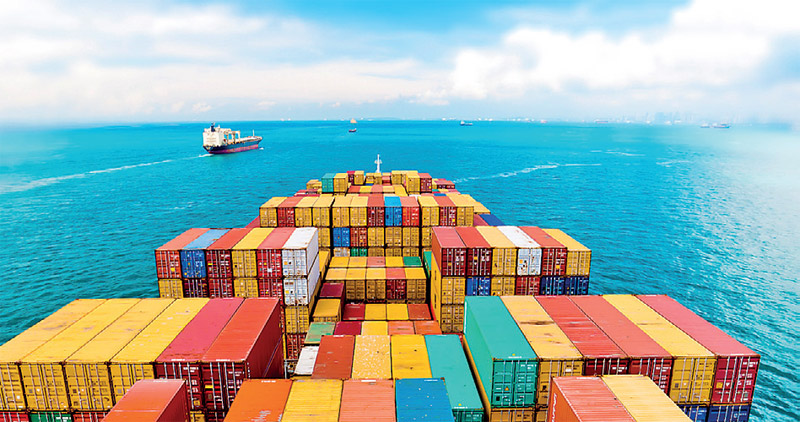Monday Feb 16, 2026
Monday Feb 16, 2026
Monday, 16 August 2021 00:00 - - {{hitsCtrl.values.hits}}

Logistics is an integral part of our lives although we do not notice it
 Living is a process of consumption of products and services. The quality of products and services differentiate level of development of a society. Agreed in a material sense, but that is what is primarily of importance today. Behind every product, service and an event there is a supply chain. Logistics is the prime mover of supply chains.
Living is a process of consumption of products and services. The quality of products and services differentiate level of development of a society. Agreed in a material sense, but that is what is primarily of importance today. Behind every product, service and an event there is a supply chain. Logistics is the prime mover of supply chains.
One can say that there will not be any life on this planet, if there is no logistics. Sri Lanka joins other countries by declaring a National Logistics Day today, which is a declaration of the understanding of this functional importance. The Government initiative in this regard is commendable to create awareness among the general public on the pivotal role logistics play in moving the economy. It is imperative to convert this understanding into real action and many a situation could be identified in the country to take logistics to the next level by focused deployment, which could yield significant socio-economic benefits. A supply chain consists of all stakeholders involved, directly or indirectly, in fulfilling a customer demand. All activities involved from the point of origin to the point of consumption are thus part of supply chains. Logistics keep the supply chain moving. Logistics is an integral part of our lives although we do not notice it. Especially during the pandemic, the importance of logistics was felt as never before. The need to create the resilience in supply chains was clearly demonstrated during the pandemic. Issues with supply chains covering food, medicine, money and information, etc. were all found to be wanting.
Understanding the basic elements of logistics is important. Just imagine a world where nothing was delivered or transported between places. Not only is logistics vitally important to the industry to meet the needs of people, it has made distribution prompt and efficient. As time has progressed, so has the importance of logistics, in fact this rise has brought factors such as warehousing and other facilities closer to consumer markets. Logistics controls the effective forward and reverse flow of goods and services from origin to recipient and vice versa. It is estimated that Sri Lanka’s logistics sector is worth $ 2 billion to the national economy. According to the Government, logistics services contribute 2.5% of GDP. Logistics services include container trucking, warehousing, ports and shipping, but exclude domestic transport of passengers, fisheries and interregional domestic cargo transportation. The total share of logistics in national exports is estimated at 7%. The industry provides full-time direct employment to over 40,000 people. Around 70% of registered companies are national and the rest are multinational. Approximately there are around 130 shipping agencies and 120 freight forwarders in associations, and 500+ companies registered with the Merchant Shipping Secretariat, which includes clearing agents. As part of the Government efforts in developing the industry needs, TVEC has taken steps to set up a sector skill council for supply chain and logistics. This will enable a mechanism to have industry inputs for the development of human resources to meet the industry demand for employment. Based on those industry recommendations and assurance, the Government will take actions to develop plans for skill development and forecasting issues in the sector. We also know that there is a serious data deficiency in industry statistics. It is hoped that through focused action via the sector skill council many of these deficiencies could be addressed.